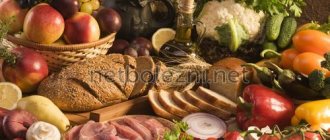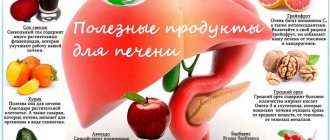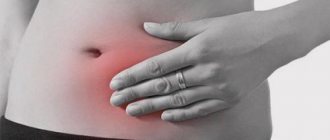Something inside is shimmering and rumbling, stool is more frequent than usual, and after eating the feeling of fullness does not go away for a long time? It is likely that your diet includes foods that cause fermentation in the intestines, and the balance is shifted towards an acidic or alkaline environment. A rational menu will help cope with discomfort if you pay a little more attention to the choice of dishes.
What happens during fermentation?
During fermentation in the intestines, carbohydrates taken with food take part. This process also occurs normally. When indigestion occurs, a large amount of undigested starch and dietary fiber enters the lumen of the colon, which causes bloating and intestinal spasms.
Rotting in the intestines occurs with the help of microbes (putrefactive bacteria), they process the remains of undigested proteins. During this reaction, toxic compounds of nitrogen and hydrogen sulfide are released, causing not only distension and severe gas formation, but also poisoning of the body. Unprocessed fats stimulate peristalsis (intestinal contractions), leading to diarrhea. Such conditions are called dyspepsia, which literally means indigestion. During fermentation and rotting, gases are intensively formed in the intestinal lumen.
Is flatulence dangerous?
Gas formation, as such, does not pose a danger to the intestines. This is a completely normal and common occurrence. Every day, about one liter of gases is formed in our body, but due to some factors it can increase several times, as a result of which a person experiences discomfort and pain in the lower abdominal region. It is considered normal when a person passes gas up to 15 times a day, but with flatulence, the intestines begin to be released much more often. Those who are faced with a similar problem are advised to go to the hospital, as it may be evidence of the development of various serious pathologies.
A few words about digestion
The entire process of digestion is very complex; its analysis cannot be approached without taking into account individual characteristics. Some people can eat large quantities of spicy foods, and even a bite of hot pepper can cause heartburn in you. This is because the composition of gastric juice, as well as the amount of enzymes and bacterial microflora - all this is individual for each organism. Genetics, as well as your overall health, age and mood, can also affect your gut function.
The most common cold can cause distress, although you have eaten this food before and then you did not have any discomfort. Before you completely change your diet, you need to carefully monitor what you eat. Believe me, your inner voice will immediately warn you that this product causes discomfort in the intestines.
It so happens that the diet of most people is acidic. This does not mean that you consume acidic foods, such as lemon, although it is quite sour, it has many beneficial properties. But for example, if you like to eat chicken, and I haven’t met people who don’t like it, then know that chicken is one of the most oxidizing foods. It is believed that it is an excess of alkaline or acidic foods that provokes fermentation.
Preventive actions
To reduce the likelihood of developing flatulence, you must adhere to a special balanced diet. Experts advise adhering to a healthy diet based on the consumption of:
- light soups cooked in weak broth;
- lean types of meat;
- sea fish;
- pumpkins;
- prunes;
- greenery
In addition, you should definitely include fennel in your diet. This plant has excellent anti-enzymatic and anti-tumor properties, which reduces the amount of gas produced in the intestines. Beets are also considered very useful. This root vegetable is a natural laxative for the intestines.
What causes fermentation in the adult intestines
Fermentation in the intestines is caused by:
- food intolerance - can be congenital or acquired, it is caused by an individual lack of an enzyme that breaks down food components (example: lactase deficiency and diarrhea after drinking milk);
- eating unusual foods - the pancreas and intestinal microflora are “not ready” to process new foods; with their regular introduction into the diet, digestion is normalized;
- feasting, overeating, combinations of various incompatible components lead to difficulty digesting food, impaired contractility of the stomach and intestines;
- excess sweets, flour, starch;
- a sharp transition to plant foods (vegan diet);
- weakness of the muscle layer of the digestive organs - consequences of inflammation, stress, hormonal imbalance;
- rapid absorption of food, insufficient chewing, lack of teeth - poorly ground food is not available for complete enzyme processing;
- decreased formation of pancreatic enzymes in chronic inflammation (pancreatitis), alcoholism;
- use of medications for a long period of time, especially antibiotics, hormones, diuretics.
With individual intolerance, fermentative dyspepsia occurs when consuming any product if it contains carbohydrates. To detect it, it is important to keep a food diary.
Bloating in children
As practice shows, the nutrition of parents and their children differs, since children do not like many dishes that adults enjoy. It is important to take into account the fact that children’s digestive system is not yet well developed, so the foods that cause fermentation in the intestines of children may differ. According to doctors and nutritionists, most often bloating occurs after eating the following foods:
- legumes;
- cabbage in any form;
- fried and boiled potatoes;
- tomatoes;
- fresh herbs;
- onion and garlic;
- grain crops;
- dairy products;
- flour products.
But with children everything is not as simple as with adults. They are susceptible to a significantly greater number of diseases accompanied by bloating. Therefore, if the problem does not disappear over a long period of time, then it is worth showing the child to the doctor.
List of foods that cause fermentation
So, we have reached the most exciting moment. In this section, we will identify foods that can cause fermentation inside the intestines, contributing to the release of gases. Let's look at them in the table below.
Table 1. Foods that cause fermentation in the intestines
| Legumes | Non-heat-treated vegetables and fruits | Alcoholic and carbonated drinks | Bakery products |
|
|
|
|
It is imperative to eat the following foods (which do not cause fermentation, and therefore do not cause flatulence):
- Lean meats: turkey, chicken;
- lean fish: hake, crucian carp, cod;
- sour milk: fermented baked milk, kefir;
- porridge: rice, buckwheat, millet;
To eliminate increased gas formation, you need to consume boiled or baked foods. A great option is to steam it. It is impossible not to mention spices, which also help eliminate excessive gas formation:
- fennel;
- marjoram;
- caraway.
In order not to suffer from flatulence after eating gas-forming food, you can simply add these spices to your dishes - it’s tasty and healthy. Mint and ginger also reduce gas formation - experts recommend consuming them as refreshing drinks.
It is worth noting right away that you do not need to completely eliminate foods that provoke flatulence; it will be enough to simply reduce its consumption. In any case, everyone should know exactly what food makes their stomach swell:
- Citrus fruits - lemons, oranges, grapefruit, etc.;
- dairy products - especially full-fat milk;
- coffee;
- nuts;
- fresh fruits and berries;
- dark and milk chocolate;
- roots;
- greens - parsley, dill, etc.;
- legumes;
- zucchini, blueberries, tomatoes and cucumbers.
If it turns out that you cannot avoid gas-forming foods, you can combine them with foods that do not cause gas formation and bloating. For example, a spoonful of bran or a glass of herbal tea would be an excellent option. If you need to eliminate the problem as quickly as possible, gastroenterologists recommend having a fasting day - on lean meat, or regular green tea with the addition of ginger.
Colic and bloating are a problem that every parent has faced. In order to avoid this phenomenon, you do not need to give your child foods that cause gas in the intestines. In addition, if the child is breastfeeding, the mother should refuse the following foods:
- fatty fermented milk products;
- fresh vegetables and fruits;
- legumes – lentils, beans, peas;
- cabbage;
- radish, radish;
- yeast baked goods.
If gas formation in a baby is caused by problems with digestion of food, then you need to exclude fatty and spicy foods, cottage cheese, beets, cucumbers, kefir, mushrooms and yeast bread. Foods that cause bloating can be consumed, but you just need to limit the amount of them, or combine them with foods that eliminate gas formation in the intestines.
Table 2. Difficult to digest foods
| Protein foods that are difficult to digest | Carbohydrate sweets |
|
|
Large amounts of sugar can cause fermentation in the intestines. Where is the most sugar found? In compotes, jams, preserves. They need to be removed from the diet. Cabbage and potatoes, especially if they have not been heat-treated, also make the intestines work harder. Flatulence phenomena are also observed after eating legumes. Canned food prepared with the addition of vinegar, alcohol, sour fruits and berries - this is all a list of foods that cause increased gas formation.
The main causes of flatulence
In the vast majority of cases, excessive gas formation is caused by foods that cause fermentation in the intestines. According to qualified specialists, the problem may be associated with the presence of some pathology or disease, but this occurs only in isolated cases.
In addition to poor nutrition, the main causes of increased gas formation include the following:
- diseases of infectious etiology occurring in acute form;
- disturbance of intestinal microflora;
- pathologies of the gastrointestinal tract of various origins;
- violation of the passage of gases;
- parasites;
- partial or complete disruption of the movement of contents through the digestive tract;
- violation of the tone of the intestinal walls;
- neurotic disorder;
- inflammatory process in the intestines.
But, as mentioned earlier, in almost 95% of cases, excess gas accumulation occurs due to the fact that people eat foods that cause fermentation in the intestines. Therefore, further we will dwell on them in more detail.
How to get rid of fermentation in the intestines
In order for your stomach to stop painfully hurting, and you are no longer afraid to appear in public, you need to follow some simple rules.
Rule #1. First of all, adjust your own diet by eliminating harmful foods from your diet and including foods such as:
- buckwheat;
- millet;
- fruits (baked to avoid fermentation processes);
- vegetables (preferably also cooked);
- lean meat (chicken, turkey);
- fish (steamed, baked, boiled, stewed);
- fermented milk drinks (kifir, bifidok, live yogurt);
- yeast-free bread (in moderation, only if you tolerate it well).
Some spices added to main dishes will also have a good effect on the digestive processes, for example:
- caraway;
- marjoram;
- dill;
- fennel.
Teas containing ingredients such as:
- ginger;
- mint.
It is best to brew them at home by simply purchasing the ingredients, since purchased mixtures may contain other herbal components that change the body’s reaction.
Rule #2. Another useful idea is fasting days. It is best to arrange them one or two days a week, not necessarily in a row, if you decide on several days. For example, you can drink non-sour kefir all day, you will need to consume about two liters in total, and you should also drink water. This will help cleanse the intestines of the remnants of food products stored in it, which affect the formation of gases and other unpleasant processes.
Rule #3. If you are a big fan of legume dishes, try to limit yourself, but once a month you can allow yourself to eat your favorite food. It is best to do this before the fasting day so that the intestines can calmly remove all unnecessary residues.
Rule #4. It's important to keep in mind that cooking also plays a role. All cereals should be washed under cold running water and then simmered over low heat until fully cooked. Greens used to soothe the intestines, such as dill, should also be thoroughly washed and served fresh, or garnished with them at the very last moment.
Rule #5. Don't let your digestive tract become overloaded. It is better to eat in small portions, but somewhat more often than usual, than to fill your stomach with a variety of foods and hope that it does not respond to you with fermentation. It is best to eat about 5-6 times in one day, evenly distributing time intervals.
Rule #6. “We’ve eaten, now we can sleep.” Forget about this famous saying if you don’t want to walk around with a bloated belly all your life. After eating, no matter whether it was scanty or dense, you need to walk around, thereby filling the intestines with blood to make it work. Movement also improves peristalsis, which means that most likely you will digest food without problems and will not feel any discomfort.
Rule #7. It is very important to have a healthy dinner. It is better to stop eating at least 2 full hours before going to bed. Food entering the gastrointestinal tract in the evening should be light.
Rule #8. Develop a culture of eating. When eating breakfast, lunch or dinner you should not:
- read;
- watch TV;
- distract yourself in other ways.
The fact is that by being fully involved in the process of eating, you set up the body to process nutrients and fully assimilate them.
Rule #9. It is best to give up some social habits, such as long conversations while eating, because when pronouncing words and chewing food at the same time, you swallow a large amount of air inside the body, which eventually enters your intestines.
Rule #10. It is very important to chew food thoroughly, since in a mushy state it will be much easier for the stomach and intestines to digest it by treating it with special enzyme juices. In this case, there will simply be nothing to linger in the intestines and ferment.
Rule #11. Create a meal schedule. This is important so that the body remembers when food comes to it and learns to process all of it without leaving a trace. This measure is very effective in combating fermentation, although at first glance there is no direct connection. Try it and see for yourself.
Rule #12. Try to chew oral gum less often. You will be surprised, but this seemingly very hygienic habit has a negative effect on fermentation and the formation of gases. When chewing gum, a large amount of air enters the digestive tract, which leads to increased formation of gases.
Colon cleansing products
Water to cleanse the intestines
Emptying the intestines is the most important function of the body, which allows you to get rid of harmful substances. However, natural bowel movements sometimes fail to cope with the cleaning function. This is all due to the high mental and emotional stress of modern man, stress and fast food - poor nutrition. How to help your body naturally detoxify? Here are the products for colon cleansing:
WATER:
- Not only physical and mental health depends on its use. When dehydrated, all body functions can be impaired, including the intestines.
- But modern people prefer to replace water with tea, coffee, and carbonated drinks. It is not right. Despite the fact that clean water is included in every drink, it only brings benefits in its pure form.
- Studies have shown that more than 70% of residents of any country, and especially the United States, are chronically dehydrated due to their love of Coca-Cola.
- Water helps digestion, thanks to it food is absorbed faster.
- Soda and, for example, chemical creamer in coffee contain toxins.
- To keep your intestines healthy, you need to drink 1.5-2 liters of clean water daily.
APPLES:
- Juicy fruits increase immunity, digestion works like clockwork.
- Apples also contain pectin, and, therefore, effectively remove toxins.
- However, if used uncontrolled, the product can be harmful.
BEET:
- A modern person is always busy, he does not have extra time to cook it or make a salad.
- However, beets are one of the best natural “detoxifiers”, excellent for cleansing the liver and intestines.
- You can eat the vegetable boiled, stewed, as part of a salad or even a dessert.
ONION:
- Thanks to it, toxins are released through the skin.
CABBAGE:
- Often used to treat ulcers, intestinal and stomach disorders.
- The product contains lactic acid and sulforaphane.
- Effectively eliminates all types of toxins.
Cabbage is especially useful when pickled. It contains many vitamins and microelements, and cabbage juice is an excellent food for good intestinal bacteria. Read an article on our website about a diet for intestinal restoration .
How to alleviate the effects of fermentation with medications
Not only herbal ingredients and spices, but also some medications can help alleviate the effects of food fermentation in the intestines. However, it must be remembered that taking them only affects the symptoms, and not the problem itself, therefore, it is absolutely impossible to solve the issue of fermentation solely by taking medications. Restore nutrition and use medications only to eliminate the consequences.
With increased gas formation resulting from fermentation of products inside the intestines, so-called “defoamer” drugs can help. Their principle of action is as follows: they act on gases that accumulate inside the intestines in the form of a foamy mass. The desired mass is destroyed under the influence of defoamers, after which the accumulated gases:
- exit through the anus;
- are absorbed into the blood.
Such products include the well-known “Espumizan”, the children's drug “Bobotik” and many similar defoamers.
Various sorbents will also help cope with gases and fermentation. These drugs absorb harmful, toxic substances, suppressing their effect, then the resulting mass is naturally released out. It is very important to drink enough water and follow the dosage while taking adsorbent medications.
Activated carbon, known to every resident of Russia, can be used as a sorbent, which must be drunk in the proportion of 1 tablet/10 kilograms of body weight.
Another pioneer of Russian first aid kits, Smecta, has a good effect on removing toxins and bacteria from the intestines that affect fermentation processes. However, this drug is quite gentle, therefore, it will not have sufficient effect in a difficult situation.
Antispasmodics will help relieve pain symptoms, for example:
- "Spazmol";
- "Nosh-pa";
- "Drotaverine" and other similar drugs.
It will also be useful to take enzymes that help digest food, for example, Pancreatin.
First aid for flatulence
If you are faced with increased gas formation, then to eliminate the symptoms of this phenomenon you need to take some measures that will make you feel better. The following recipes are good for flatulence:
- mix 0.5 teaspoon of baking soda with vinegar, dilute in a small amount of water and drink after meals;
- drink chamomile tea, which normalizes the functioning of the digestive system and helps eliminate excess gases.
It is worth noting that these recipes are not therapeutic, but only help to improve well-being, so if flatulence does not go away over a long period of time, then you should consult a doctor.
How to cope with a storm?
If troubles recur regularly, be sure to consult a gastroenterologist. Overflow, rumbling and other unnatural sensations in the abdominal cavity can be a symptom of a chronic disease or a serious imbalance of intestinal flora. But if discomfort is an unexpected and sudden phenomenon, try a one-day diet of weak green or chamomile tea without additives (no sugar, aromatic components, etc.). Take activated carbon at the rate of half a tablet per 10 kg of weight.
Be sure to exclude:
- any baked goods, fresh bread;
- milk, sour milk, cheeses;
- any semi-finished products, pickles, marinades, carbonated drinks, green vegetables and fruits, anything fried.
Do not eat dry food, chew your food thoroughly and under no circumstances eat cold or scalding hot foods. Unfortunately, there are no products that definitely do not cause fermentation in the intestines. Therefore, to the already recommended tea, you can only add a little brown rice or buckwheat in water, a small piece of boiled veal/chicken or white lean fish. Within a day, all symptoms should disappear without a trace. If not, consult a doctor.
general information
Flatulence translated from Greek means “bloating.” It refers to excessive accumulation of gases in the intestines. There is no pain or any pronounced symptoms, but involuntary and abundant release of gases causes some discomfort, especially if the person is at work or in any crowded place at that moment. There are various foods that cause fermentation in the intestines. A list of such edibles will be presented below, but for now let's look at the main features of flatulence.
In most cases, increased gas formation is accompanied by a feeling of heaviness in the lower abdomen, unpleasant belching, and sometimes a person may experience piercing pain that quickly comes and disappears immediately after the gas passes. If such a condition is caused not by a specific product, but by poor nutrition, then the patient may experience constipation or loose stools.
Drugs that eliminate gas formation
There are no highly effective carminative drugs in medicine. Therefore, the goal of therapy is to prevent bloating. In many cases, medications are not required. Many intestinal complaints that cause flatulence can be alleviated by changing your diet.
If flatulence is the result of an illness, it must be treated first. For chronic inflammatory bowel disease, treatment usually starts with anti-inflammatory agents such as cortisone or other drugs that suppress the body's immune system (immunosuppressants). For flatulence caused by dyspepsia due to a lack of digestive enzymes, enzyme preparations are used. Agents that reduce the formation of gases are not always required.
IBS is accompanied by severe flatulence. In one study, the research team found that a unique bacterial strain of B. bifidum, MIMBb75, could significantly improve symptoms of flatulence.
Various products are available to help with flatulence:
- Defoamers prevent the accumulation of large amounts of gas in the intestines. Defoamers are available in the form of chewable tablets at the pharmacy,
- Antispasmodics relieve pain from compression of the intestinal walls,
- Some prescription drugs for depression (tricyclic antidepressants) in low doses help with abdominal pain and excess fermentation.









